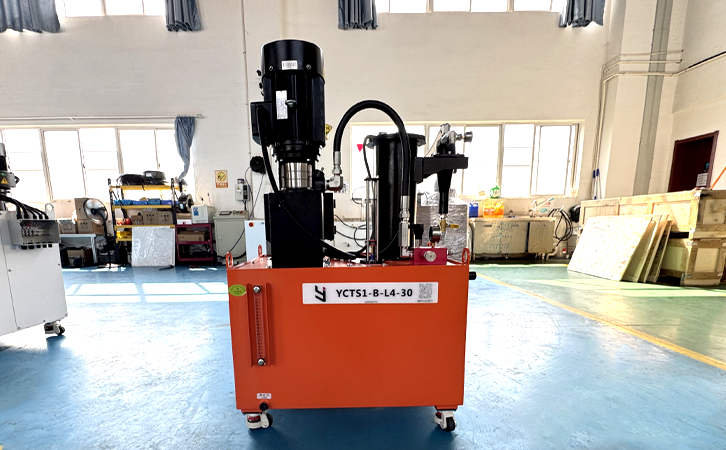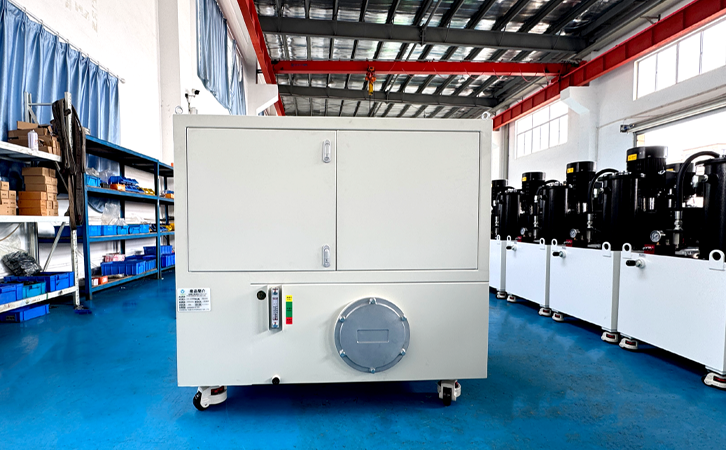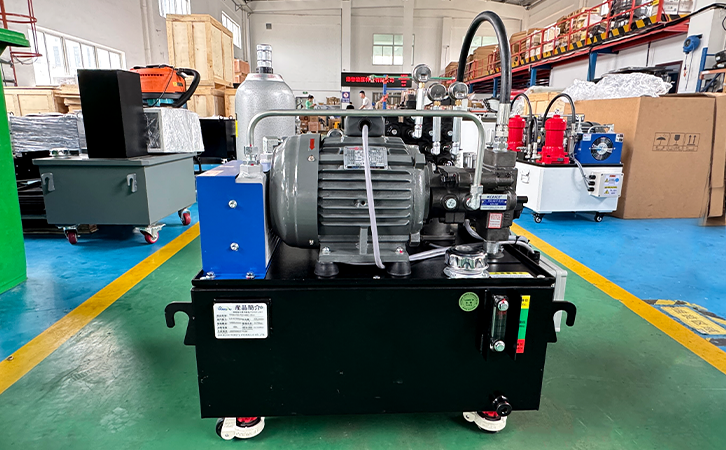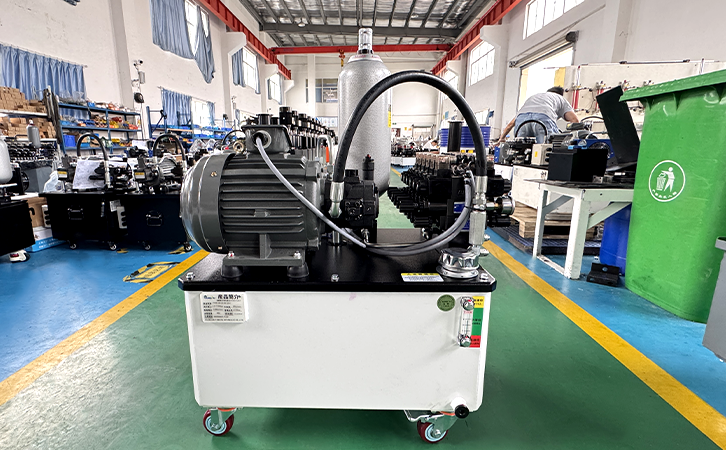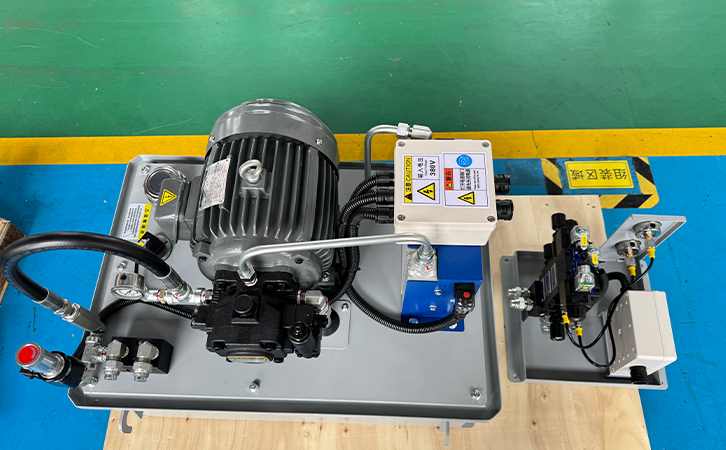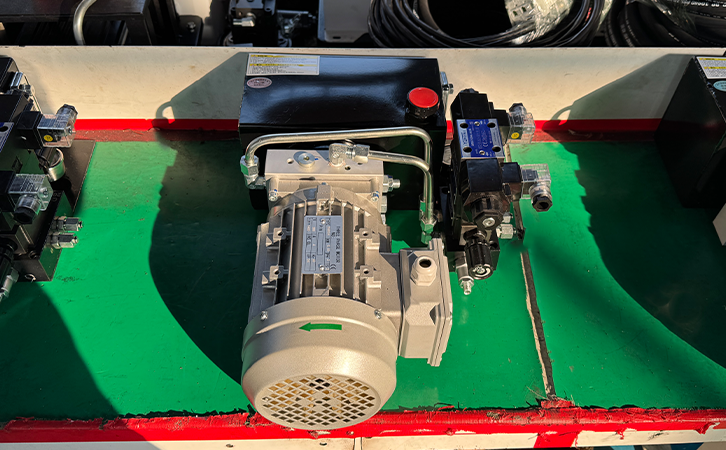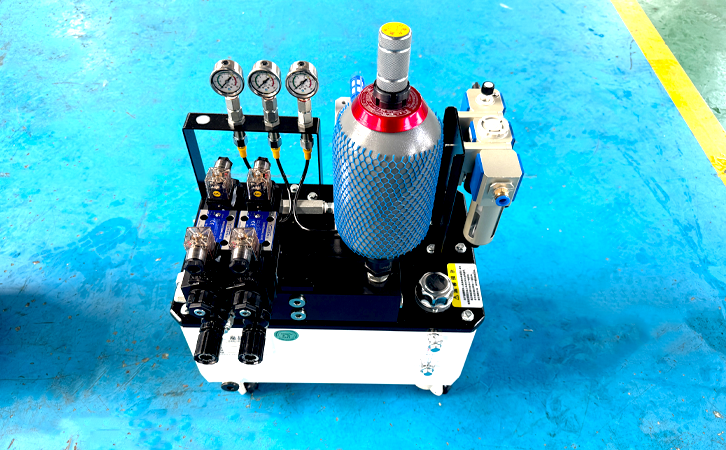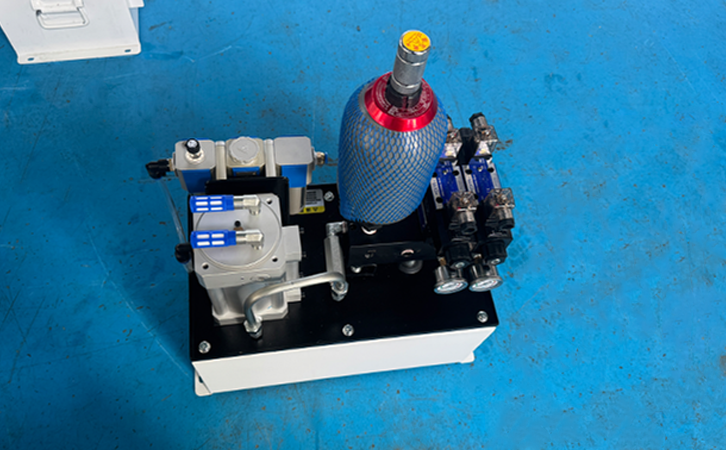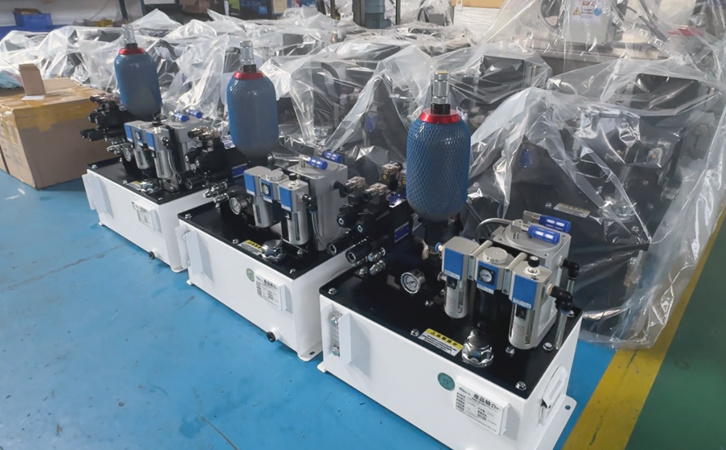Choosing a suitable hydraulic station: a comprehensive and detailed guide
Date: 2024-12-19 Categories: Case、Hydraulic station information、Industry News Views: 14816
article directories[Hidden]
In modern industry,Hydraulic station作为供液压系统的动力源,广泛应用于各种机械设备,是实现机械运动控制的关键部件。无论是在工程机械、冶金设备、还是船舶行业,选用合适的液压站至关重要。本文将为您详细剖析选择适合的液压站的要点,帮助您做出明智的决策。
1. Understand the basic structure and function of the hydraulic station
The core function of the hydraulic station is to provide a stable pressure output to the hydraulic system to drive the movement of hydraulic actuators (such as hydraulic cylinders and hydraulic motors). It is mainly composed of the following parts:
- Pump device: The heart of a hydraulic station, generally including hydraulic pumps, motors, couplings, etc. The choice of pump (such as gear pump, vane pump, or plunger pump) depends on the system pressure and flow requirements.
- 控制阀组:负责液压油的流动和方向控制,调节压力,确保油液供给到所需部位。
- Fuel tank: store and cool hydraulic oil.
- Filtration system: used to remove impurities from hydraulic oil to extend the life of the system.
- Cooling device: Keep the oil at a suitable working temperature to avoid overheating and affect the performance of the equipment. 2. Clear requirements: understand application scenarios
Choosing a suitable hydraulic station first requires a clear understanding of the specific application requirements. Different industries and equipment may have obvious differences in the requirements of hydraulic stations.:
- Pressure requirements: Confirm the working pressure required by the equipment to ensure that the hydraulic station can provide sufficient pressure to meet the work needs.
- Flow requirements: According to the movement speed and load of the equipment, the required hydraulic flow is calculated. This is an important basis for choosing the hydraulic pump model.
- Operating environment: Understand the temperature, humidity and dust levels of the working environment to select the hydraulic station whose durability meets the requirements.
- Continuous working time: The operating time of the equipment affects the specifications and types of hydraulic stations, and it is clear whether it is intermittent or continuous work. 3. Consider energy efficiency
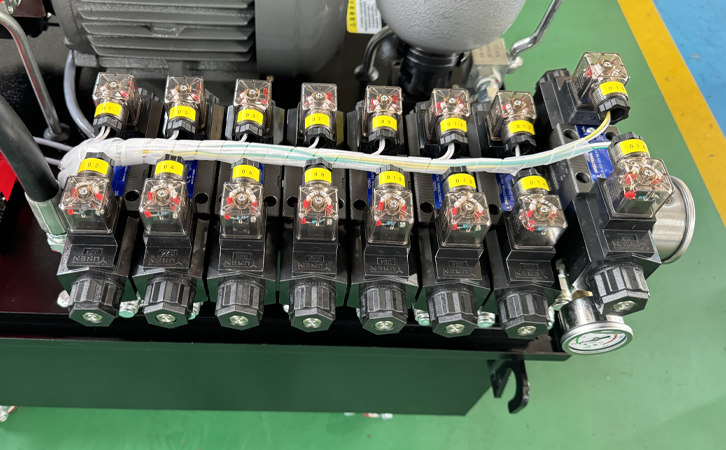
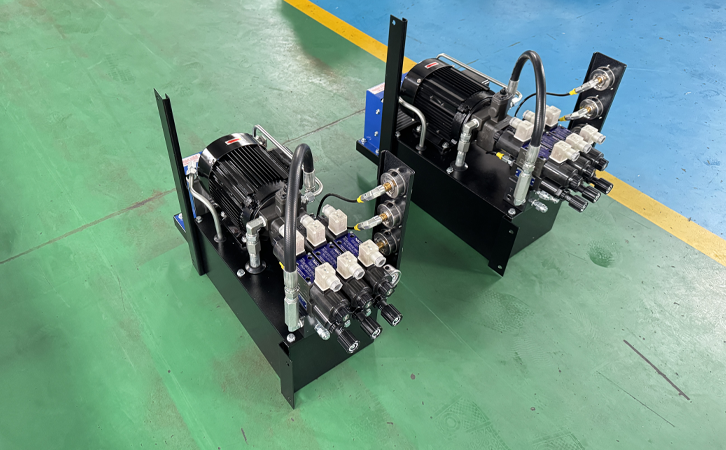
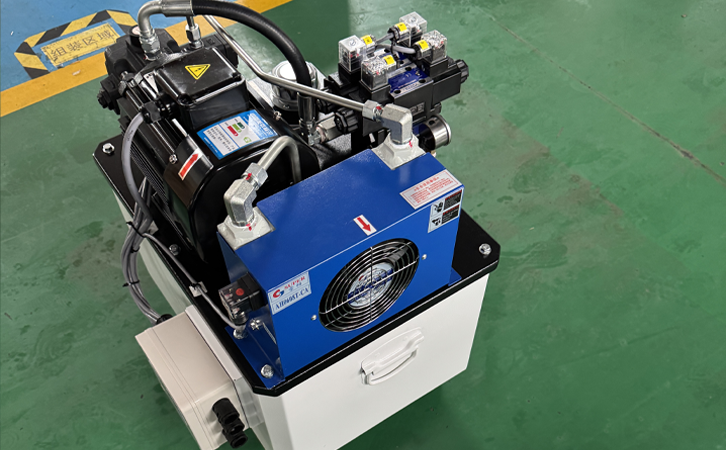
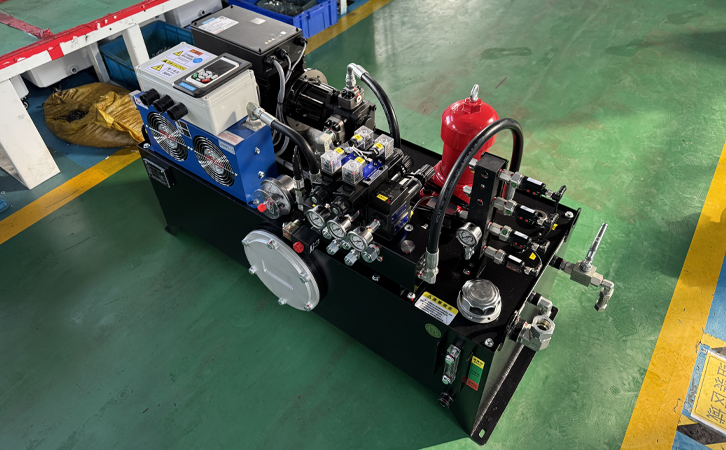
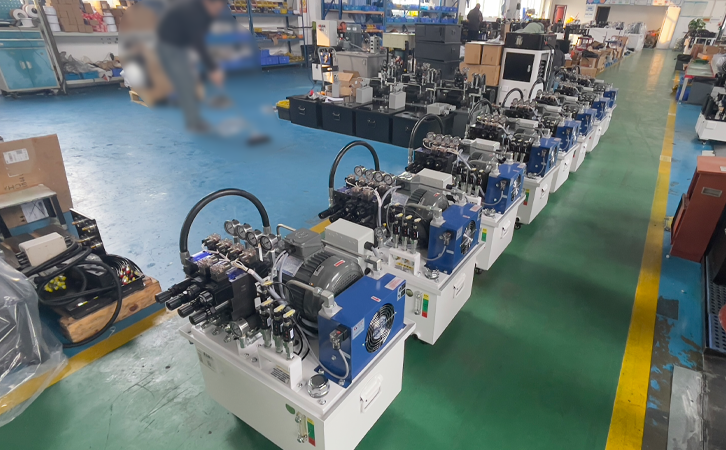
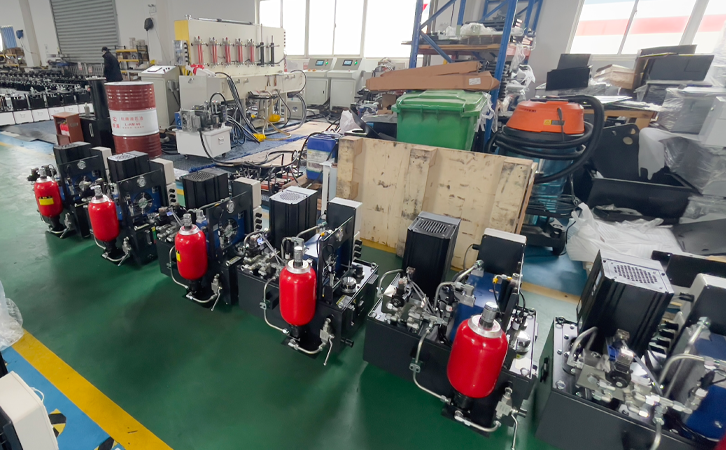
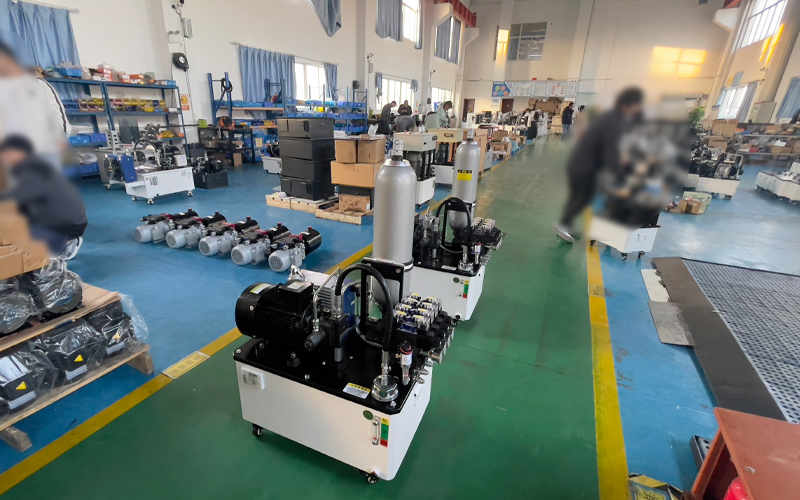
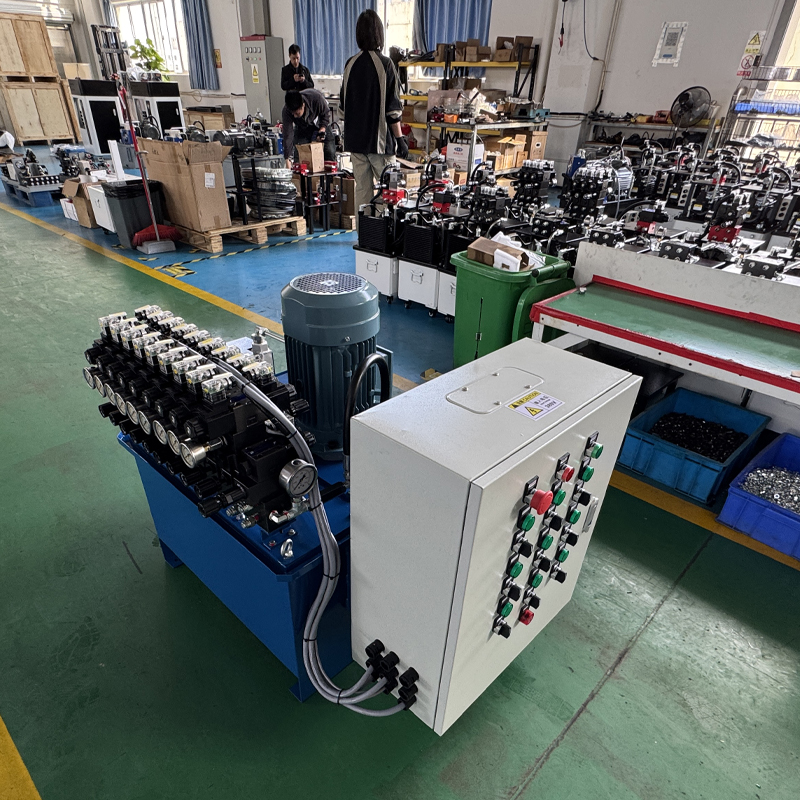
When choosing a hydraulic station, energy efficiency is a vital factor. The use of energy-saving design of hydraulic stations can not only reduce daily operating costs, but also reduce environmental impact. Modern hydraulic stations are often equipped with frequency conversion technology or servo systems to adjust the speed and output of the pump according to actual load conditions to achieve energy-saving effects.
2. Customization and versatility
Choosing standardized products or customized hydraulic stations according to demand is also an important consideration. Standardized products usually have lower costs and shorter delivery times. However, if the equipment has special requirements for the hydraulic system, it may be necessary to customize the hydraulic station to meet specific performance or installation space constraints.
3. Quality and brand reputation
When purchasing hydraulic stations, you should try your best to choose well-known brands to ensure product quality and after-sales service. Products of well-known brands usually undergo strict quality control and years of user testing to provide more stable and long-lasting performance.
Fourth, comprehensive cost considerations
Finally, the choice of hydraulic station requires comprehensive consideration of the initial purchase cost and the later maintenance cost. Although the procurement cost of high-quality hydraulic stations is higher, their stability and durability may make their comprehensive use cost during the life cycle lower. In addition, the after-sales service of products and the availability of spare parts are also important factors in reducing late maintenance costs.
V. Case analysis
Let us use a practical case to further illustrate. Suppose a construction machinery manufacturer needs to purchase a hydraulic station for its new excavator. First, they will analyze the maximum pressure and flow requirements required by the excavator to ensure that the hydraulic station can meet the requirements under the most demanding conditions. Next, they will consider the running time of the equipment-if it is 24 hours of high-intensity work, they may choose a hydraulic station with higher durability.
In addition, the manufacturer may focus on selecting energy-saving hydraulic stations to cope with frequent start-stop and load fluctuations of excavators, and simultaneously inspect multiple brands to evaluate product quality and after-sales service capabilities. Finally, they will choose a supplier that can provide long-term support and has a local inventory of spare parts to ensure the continuous and efficient operation of the equipment.
conclusion
Choosing the right hydraulic station is a complex process that requires comprehensive consideration. Understanding the basic structure and function of hydraulic stations, clarifying the specific needs of equipment, paying attention to energy efficiency and sustainability, and measuring quality and comprehensive costs are all important steps to make informed choices. Through the detailed analysis and case sharing of this article, I hope to provide practical guidance for your hydraulic station selection and make your equipment run more efficiently.


